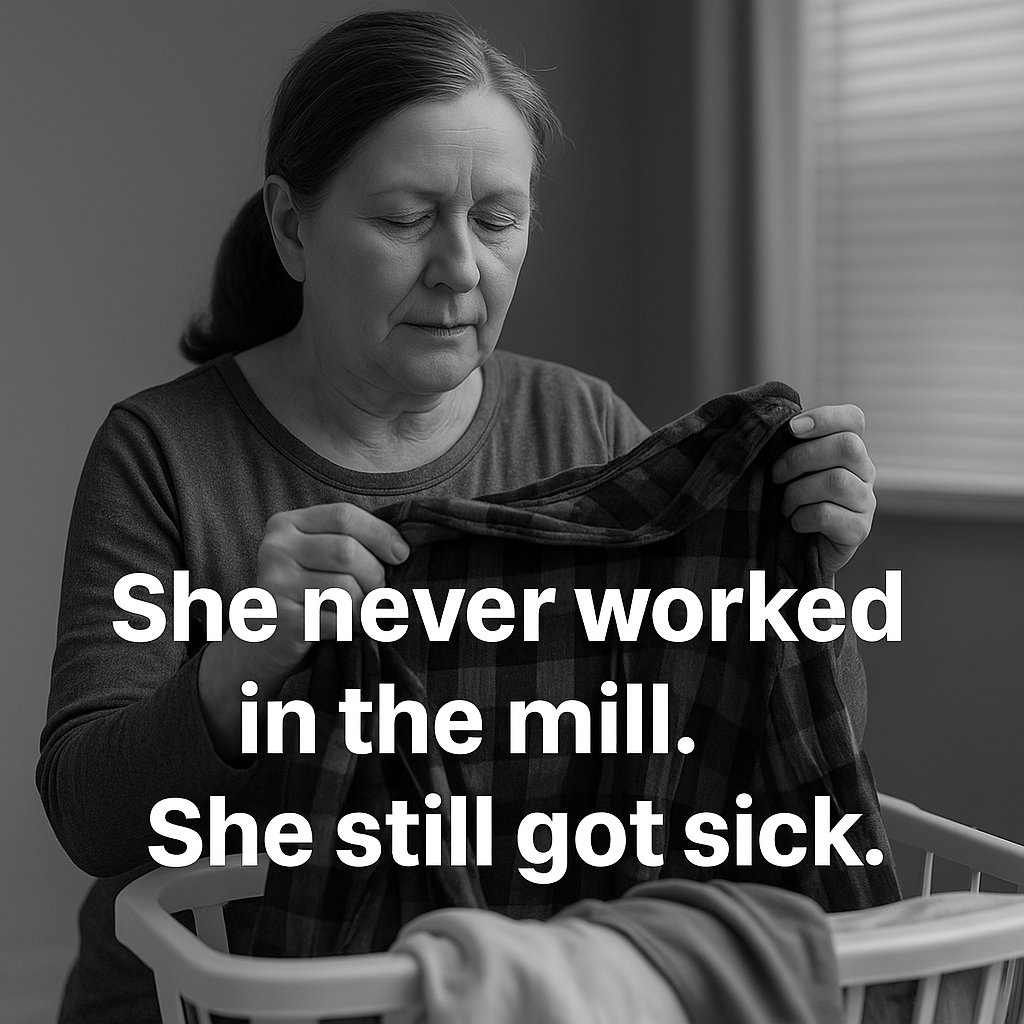For years, thousands of women in West Virginia and Pennsylvania were exposed to asbestos fibers without ever stepping inside a steel mill or power plant. This is known as household asbestos exposure, also called take-home asbestos exposure. It happens when workers unknowingly carry asbestos home on their clothing, shoes, or gear—and family members inhale those invisible fibers while doing laundry or sharing the same space.
They weren’t workers.
They were wives. Mothers. Daughters.
And their exposure came from the laundry room.
⸻
⚠️ How It Happened
Steel mills, chemical plants, and power stations used asbestos in insulation, gaskets, boilers, and other industrial materials. When disturbed, asbestos breaks into microscopic fibers that cling to clothing.
Without proper warnings or protective measures, workers brought that danger home.
When their wives shook out dusty jeans before washing them—or rode in the same car, or swept the floor—they were breathing in asbestos.
⸻
💔 Who Was Affected
We’re still seeing mesothelioma and lung cancer cases tied to secondary exposure. These often involve:
• Women who handled laundry for a spouse working at:
• Clairton Coke Works
• Bethlehem Steel
• Adult children exposed in the home growing up
• Families of Duquesne Light and coal plant workers
⸻
⚖️ Can You File a Claim?
Yes. Courts in Pennsylvania and West Virginia recognize household asbestos exposure as a valid path for compensation.
If someone in your family was diagnosed with mesothelioma, asbestosis, or lung cancer, and another household member worked in a known asbestos job site, you may still have a case—even if it happened decades ago.
📞 Call (412) 781-0525 or
🔗 Visit our asbestos exposure claim guide
You don’t need to know all the details.
We’ll help you figure it out.

